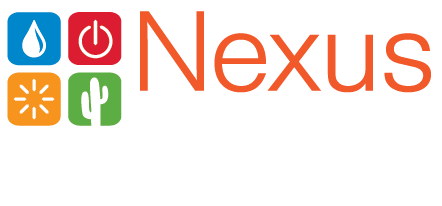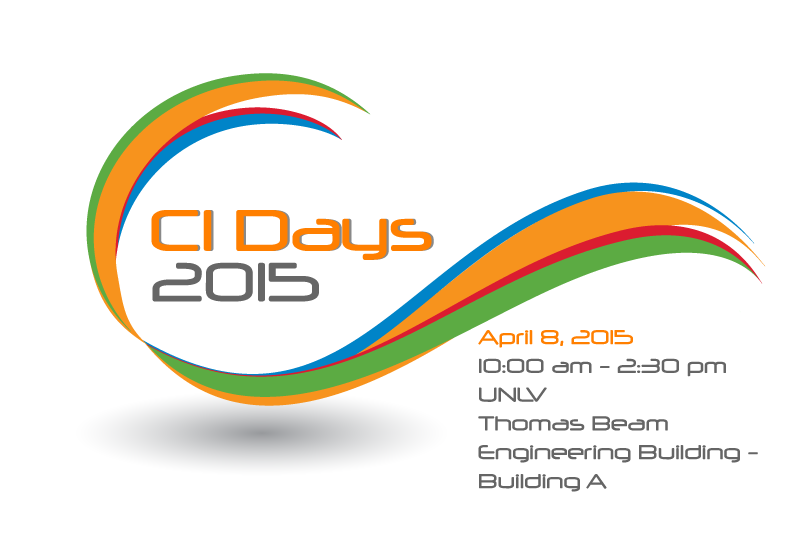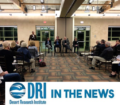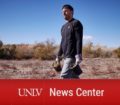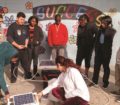CI DAYS
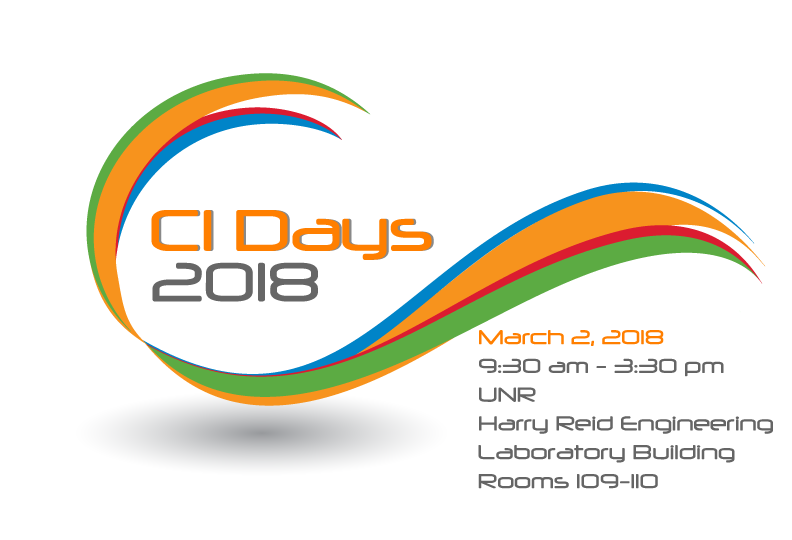
The Cyberinfrastructure (CI) Day presents an opportunity for educators and students to understand the benefits that cyberinfrastructure can bring to their scholarly pursuits, to see how others utilize cyberinfrastructure, and to learn what resources are available on campus, across institutions in Nevada, and nationally.
Registration is now closed. If you have any questions, please contact Mayara Cueto-Diaz, mcueto-diaz@nshe.nevada.edu.
This one-day event features:
- Understand how cyberinfrastructure helps create, disseminate, and preserve scientific data and knowledge
- Learn about modern computing technology and how it supports scientific research and everyday life activities
- Participate in tours and demonstrations at the UNR labs: Robotics, Drones, Autonomous Vehicles, High Performance Computation and Visualization (HPCVIS), and Earthquake Engineering
- Learn about the Nevada Research Data Center (NRDC)
- Learn about paid research and program opportunities for Nevada college students and teachers
- Network with Nevada research faculty and students
What is CI?
The National Science Foundation defines CI as a collection of advanced technologies and services to support scientific inquiry.
This includes:
- Computing clusters and high performance computing systems
- Data management, data integration, and data storage systems
- Digitally-enabled sensors and observatories
- Interoperable suites of software, services, and tools
- High speed networks
- Data mining and data visualization
- Collaboration and security tools
- The people who design, build, and run these systems
For more information contact:
Michele Casella
NSHE Sponsored Programs & EPSCoR Office
mcasella@nshe.nevada.edu 702-522-7076
*This material is based upon work supported by the National Science Foundation under Grant No. IIA-1301726.

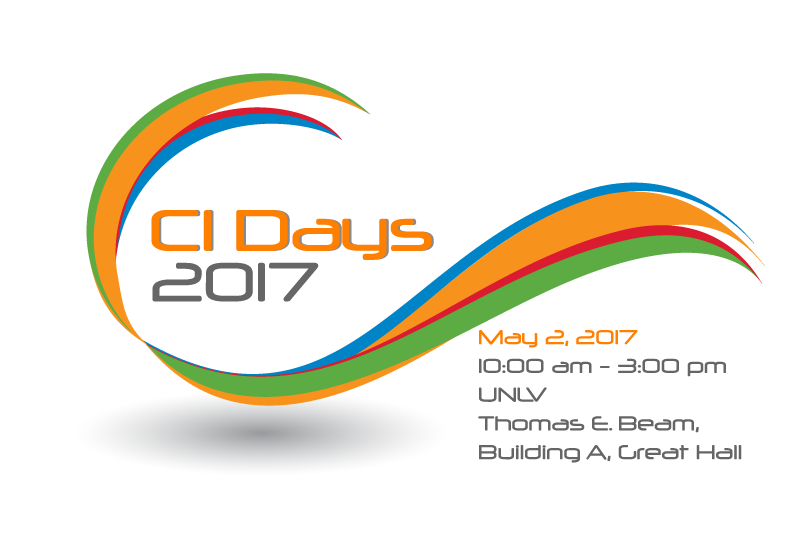
The Cyberinfrastructure (CI) Day presents an opportunity for educators and students to understand the benefits that cyberinfrastructure can bring to their scholarly pursuits, to see how others utilize cyberinfrastructure, and to learn what resources are available on campus, across institutions in Nevada, and nationally.
- Open to all interested students and educators
- Maximum 50 participants
- Registration required by 04/28/17
- Location at UNLV: TBD
This one-day event features:
- Concept of Cyberinfrastructure
- History of Computers
Dr. Sarah Harris, UNLV – Computer engineering research and practice bring together math, physics, and the natural sciences in application to real-world problems. For example, some of the projects I have worked on over the past 20 years include designing a VLIW processor at Hewlett-Packard, designing the power management system of Nvidia’s GPU processors, building biomedical monitoring devices, and accelerating algorithms on Intel multi-core processors and clusters. Current projects include designing a system to measure force and velocity to measure animal and human gait efficiency, using field programmable gate arrays (FPGAs) to accelerate software algorithms, and developing hardware-driven deep learning systems.
- Overview of Nevada Research Data Center (NRDC)
- Posters by Nexus CI Graduate Students
- Interactive Sessions:
Python Software
Drs. Mei Yang and Yingtao Jiang – In this workshop, we will briefly introduce Southern Nevada Research Cloud (SNRC) and Python programming. Then a snow detection use case based on machine learning method using the image data from Nevada Research Data Center will be presented
Raspberry Pie
Computer Security
- Nevada STEM Mentor Network
- EPSCoR Outreach and Future Opportunities
What is CI?
The National Science Foundation defines CI as a collection of advanced technologies and services to support scientific inquiry.
This includes:
- Computing clusters and high performance computing systems
- Data management, data integration, and data storage systems
- Digitally-enabled sensors and observatories
- Interoperable suites of software, services, and tools
- High speed networks
- Data mining and data visualization
- Collaboration and security tools
- The people who design, build, and run these systems
For more information contact:
Michele Casella
NSHE Sponsored Programs & EPSCoR Office
michele_casella@nshe.nevada.edu 702-522-7076
*This material is based upon work supported by the National Science Foundation under Grant No. IIA-1301726.

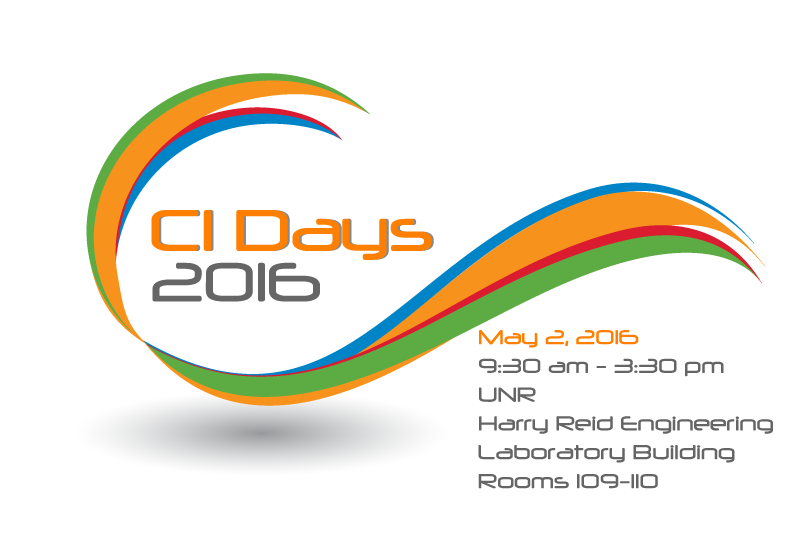
The Cyberinfrastructure (CI) Day presents an opportunity for educators and students to understand the benefits that cyberinfrastructure can bring to their scholarly pursuits, to see how others utilize cyberinfrastructure, and to learn what resources are available on campus, across institutions in Nevada, and nationally.
Cyberinfrastructure Day 2016 Great Success!
Read about it here in our blog!
This one-day event featured:
- Understand how cyberinfrastructure helps create, disseminate, and preserve scientific data and knowledge
- Learn about modern computing technology and how it supports scientific research and everyday life activities
- Participate in tours and demonstrations at the UNR labs: Robotics, Drones, High Performance Computation and Visualization (HPCVIS), and Seismology
- Learn about the Nevada Research Data Center (NRDC)
- Learn about paid research and program opportunities for Nevada college students and teachers
- Network with Nevada research faculty and students
What is CI?
The National Science Foundation defines CI as a collection of advanced technologies and services to support scientific inquiry.
This includes:
- Computing clusters and high performance computing systems
- Data management, data integration, and data storage systems
- Digitally-enabled sensors and observatories
- Interoperable suites of software, services, and tools
- High speed networks
- Data mining and data visualization
- Collaboration and security tools
- The people who design, build, and run these systems
For more information contact:
Michele Casella
NSHE Sponsored Programs & EPSCoR Office
michele_casella@nshe.nevada.edu 702-522-7076
*This material is based upon work supported by the National Science Foundation under Grant No. IIA-1301726.

Cyberinfrastructure (CI) Days presents an opportunity for faculty and students to understand the benefits that cyberinfrastructure can bring their scholarly pursuits, to see what others are doing with cyberinfrastructure, and to learn what resources are available on campus, across institutions, and nationally.
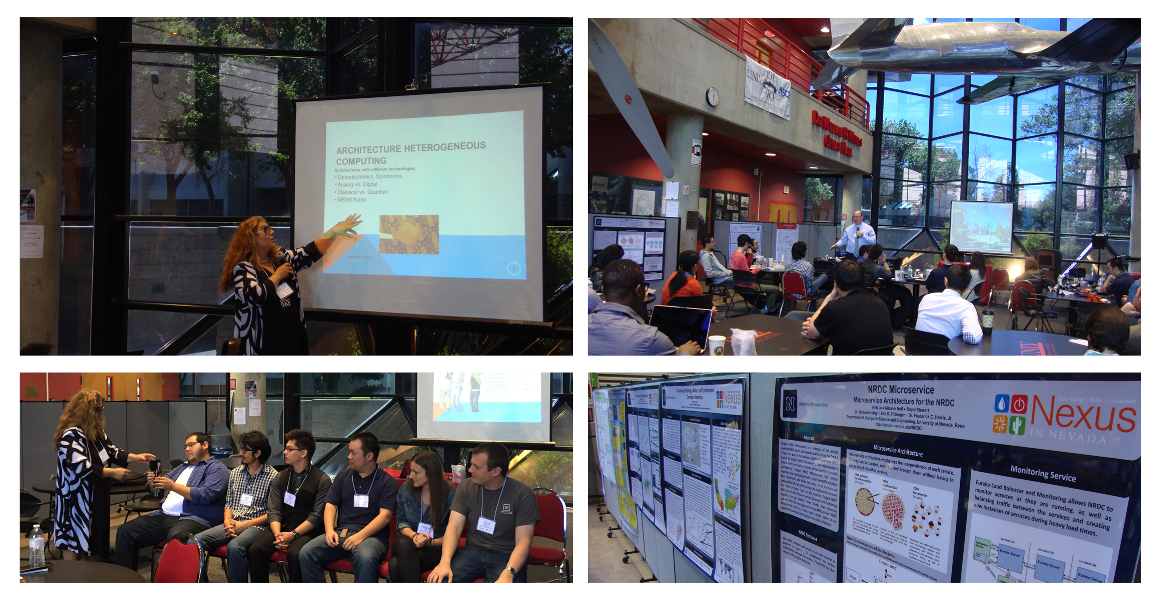
This one-day event featured:
- Learn about modern electronics technology and how they support scientific research and everyday life
- Participate in tours and demonstrations at the UNLV Geovisualization/Remote Sensing Core Laboratory
- Learn about the paid research and program opportunities for Nevada college students and teachers
- Network with Nevada research faculty and students
- Learn about the Nevada Research Data Center (NRDC)
What is CI?
The National Science Foundation defines CI as a collection of advanced technologies and services to support scientific inquiry.
This includes:
- Computing clusters and high performance computing systems
- Data management, data integration, and data storage systems
- High speed networks
- Data mining and data visualization
- Collaboration and security tools
- The people who design, build, and run these systems
For more information contact:
Michele Casella
NSHE Sponsored Programs & EPSCoR Office
michele_casella@nshe.nevada.edu 702-522-7076
*This material is based upon work supported by the National Science Foundation under Grant No. IIA-1301726.

